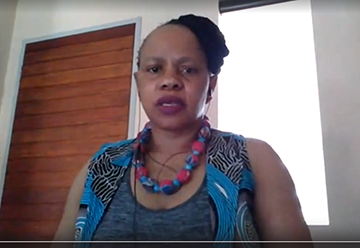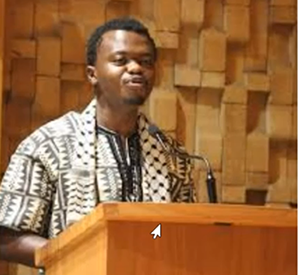News & Events
Accelerating online research support for postgrads
The second Annual Postgraduate Research Indaba organised by Unisa’s College of Graduate Studies (CGS) in collaboration with the National Student Representative Council (NSRC) took place virtually on 19 September 2020 under the theme "Research support of postgraduate studies in the wake of sustainable development goals (SDGs)".

Prof Mandla Makhanya, Unisa Principal and Vice-Chancellor
Jam-packed with a variety of topics and speakers, the programme was facilitated by both Prof Lindiwe Zungu, Executive Dean of CGS, and Amu Ngwenya, Secretary General of the NSRC, focusing mainly on research support initiatives, research ethics, transformation, writing for publication, innovative research and financial avenues for postgraduate students.

Prof Lindiwe Zungu, Executive Dean, College of Graduate Studies
Opening the first part of the programme, Zungu said acquiring an undergraduate qualification only is no longer adequate for one to sustain a progressive position in the workplace or job market. She said whether one is employed or not, the reality is that competition in the graduate job market is increasingly becoming fierce. "It is irrefutable that postgraduate studies remain the main driver for expansion of professional network, improvement of academic knowledge as well as general personal development expected from students to achieve or acquire upon successful completion of their studies."
According to Zungu, postgraduate studies provide an effective tool for people to compete better in the global environment. "Without postgraduate studies, it will be hard to take advantage of full access to opportunities that are presented in the global and national labour market, as this provides specialist knowledge in terms of critical thinking and analytical skills which are critically important and highly relevant in the job market," she said.
Sustaining transformative research
Presenting his welcoming remarks, Prof Mandla Makhanya, Unisa Principal and Vice-Chancellor, stated that the university is determined to grow its research. "We are determined to make it a core component of the scholarship that is fully understood, appreciated and practised for simply what it is." In addition, Makhanya said that one of the exciting things about research is its reach. "Research does and can change lives, societies and our world - and Unisa wants its voice to be heard."
"As a Pan African university committed to the development of our country and the continent, we believe that one of our biggest forces for change and transformation lies in the research that we produce in pursuit of our SDGs, Agenda 2063 and the various collaborative developmental initiatives of our BRICs partners," he declared.
Adding to the discussion, Prof Thenjiwe Meyiwa, Vice-Principal of Research, Postgraduate Studies, Innovation and Commercialisation, announced that Council had approved a strategy focusing on SDGs. "Research should not just be done on the basis of it is good to do it but more importantly on finding solutions, preventing problems, and also ensuring what solutions and preventative measures speak hand in glove with the communities that we work with," she said while outlining the purpose of the indaba.
Common sense back in the driver’s seat

Ntando Sindane, Unisa Master of Law graduate
Delivering the keynote address, Ntando Sindane, a Unisa Master of Law graduate, challenged the audience on the theme, focusing on his postgraduate experience. Putting common sense back in the driver’s seat, he shared stories of students who had some difficulties in completing their qualifications due to what he calls "shoddy admin systems". Sindane expounded on the phrase "accelerating online support". He said: "I want us to specifically focus on the word 'accelerating', not its etymological foregrounding, neither its epistemic nor ontological possibilities, but instead its metaphorical realities."
"Before a car can accelerate, there are a few things that should happen first," said Sindane. "First", he said, "you must get into the car, place the key in the ignition, switch it on, start the engine and wait for it to warm up. Once the engine is warm, you then apply all gears accordingly, so you place gear one, then gear two, right up to the 5th gear - only then can you realistically accelerate." His speech focused on the university's operational blunders that tampered with students’ academic success.
During the discussions, Prof Patrick Ngulube from the School of Interdisciplinary Research and Graduate Studies spoke on the relevance of postgraduate students. "We look at the SDGs to focus on relevance and providing solutions to our problems, societies and context. We emphasise that students should produce relevant knowledge while they enjoy their research journey." Championing African ways of knowing, Ngulube said they support the research of postgraduate students to be positioned in such a way that it is relevant rather than mimicking western theories and methodologies.
At the same time, Prof Kgomotso Masemola, Executive Dean of the College of Human Sciences, unpacked the SDGs, highlighting the importance of research in bringing solutions to the problems Africa is facing. He explained: "SDGs are a collection of 17 goals designed as a blueprint to achieve a better and more sustainable future. Therefore, our research must contribute to executing the mandate of that blueprint through our research questions. The nature of our research questions should be able to address these goals."
* By Lesego Ravhudzulo, Journalist, Department of Institutional Advancement
Publish date: 2020-10-07 00:00:00.0

